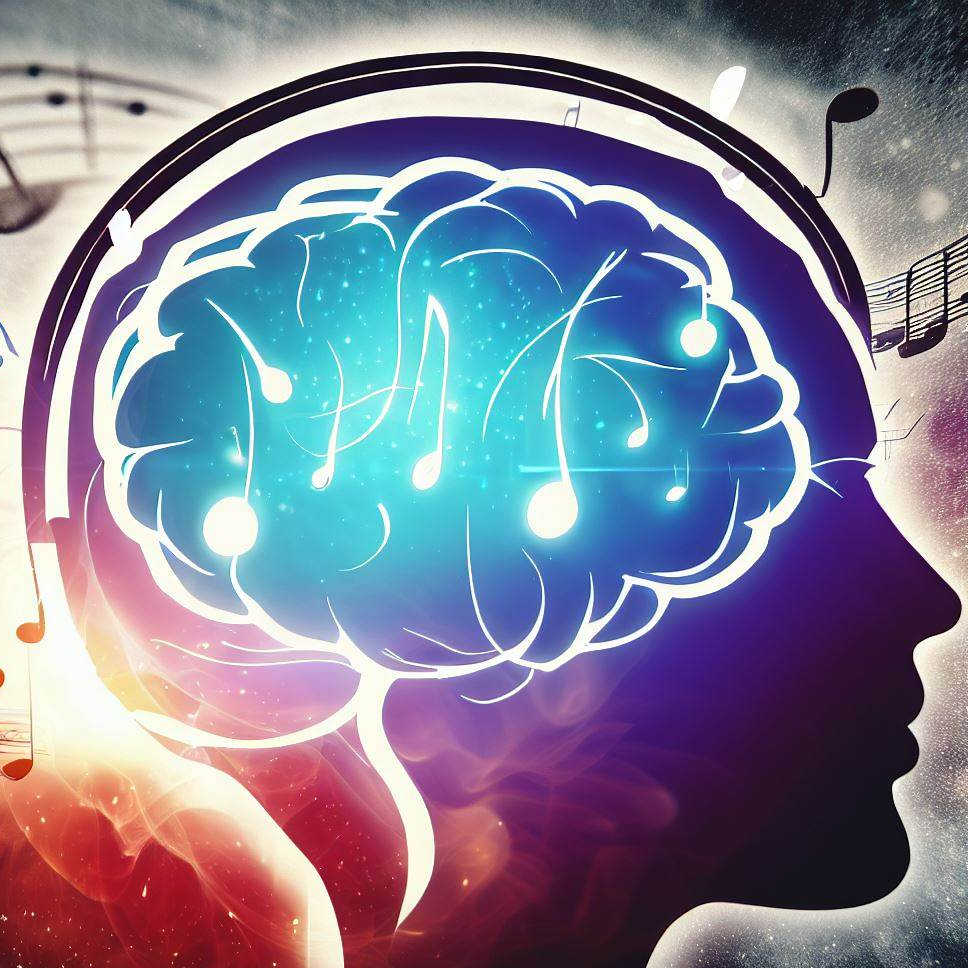Music is a universal language that has the power to move us, evoke emotions, and transport us to different worlds. Whether it's a catchy pop tune, a classical symphony, or a heartfelt ballad, music has a profound impact on our lives. But have you ever wondered how melodies affect our brains? The field of neuroscience has delved into this fascinating subject, uncovering the intricate ways in which music engages our neural circuits and influences our cognitive and emotional states. In this article, we will explore the neuroscience of music, examining how melodies can shape our brain activity, mood, and overall well-being.
-
The Brain's Musical Processing
When we listen to music, our brains engage in a complex interplay of neural networks and regions responsible for auditory perception, emotion processing, memory, and attention. The auditory cortex, located in the temporal lobe, is the primary area involved in processing musical information. It receives sound signals from the ears and analyzes various aspects of music, such as pitch, rhythm, and timbre. As the auditory cortex decodes these elements, it activates other regions of the brain, leading to emotional and cognitive responses.
-
Emotional and Reward Systems
One of the most captivating aspects of music is its ability to evoke powerful emotions. This is due in part to the involvement of the brain's limbic system, which plays a crucial role in processing emotions. When we hear music, the limbic system, including the amygdala and hippocampus, responds by releasing neurotransmitters such as dopamine, serotonin, and oxytocin. These chemicals contribute to feelings of pleasure, happiness, and bonding, creating a rewarding experience. It explains why we often feel a sense of euphoria or chills down our spine when listening to a particularly moving melody.
-
Memory and Music
Music has a unique capacity to trigger memories and transport us back in time. This phenomenon is rooted in the brain's intricate connections between auditory processing and memory formation. The hippocampus, a structure vital for memory consolidation, interacts with the auditory cortex to create and retrieve musical memories. When we associate a song with a particular event or emotion, the neural networks involved in memory encoding become intertwined with the musical experience. This cross-linking allows music to serve as a powerful mnemonic device, helping us recall memories and emotions long after they occurred.
-
Attention and Focus
Music also impacts our attention and focus. Certain genres or tempos can either enhance or distract our cognitive processes. For instance, upbeat and energetic music can increase alertness and improve performance during physical activities or repetitive tasks. In contrast, calming melodies with a slower tempo can induce relaxation and aid in stress reduction. Researchers have even found that playing background music while studying or working can enhance productivity and focus for some individuals. However, it's important to note that the effects of music on attention can vary among individuals, depending on personal preferences and the nature of the task at hand.
-
Therapeutic Applications
Given its profound effects on the brain, it's no surprise that music is also used therapeutically. Music therapy has gained recognition as an effective approach to address various physical, cognitive, and emotional conditions. For example, in individuals with neurological disorders like Parkinson's disease or stroke, rhythmic auditory stimulation can help improve motor coordination and movement. In psychiatric settings, music therapy can alleviate symptoms of depression, anxiety, and post-traumatic stress disorder by providing a means of emotional expression and promoting relaxation. Moreover, music has been shown to reduce pain perception, promote social bonding, and enhance overall well-being.
-
Individual Differences
While music has a universal appeal, it's worth noting that individual differences exist in how people respond to melodies. Personal preferences, cultural backgrounds, and previous musical experiences all contribute to the unique ways our brains process and respond to music. Some studies have suggested that certain personality traits, such as openness to experience and extraversion, can influence musical preferences. For example, individuals with a higher openness to experience tend to enjoy a wider range of genres and have a greater appreciation for complex and unconventional musical compositions.
Furthermore, musical training and expertise can shape the brain's response to music. Musicians who have undergone years of practice and training often exhibit enhanced neural connectivity and structural changes in brain regions related to auditory processing and motor coordination. This suggests that musical training not only enhances musical abilities but also has broader effects on cognitive functions such as attention, memory, and executive control.
-
The Role of Expectations
Our brains are constantly making predictions and forming expectations based on the patterns and structures we encounter. Music is no exception to this cognitive process. When we listen to a piece of music, our brains anticipate upcoming melodic patterns, chord progressions, and rhythmic sequences based on our musical knowledge and previous exposure. This interplay between prediction and fulfillment of musical expectations contributes to the pleasurable experience of listening to music. When our predictions are met, it reinforces our engagement and enjoyment, while unexpected musical elements can surprise and captivate us.
-
Neuroplasticity and Music
The brain's ability to change and adapt, known as neuroplasticity, plays a fundamental role in how music affects our brains. Research has shown that engaging with music can lead to structural and functional changes in the brain, even in adulthood. For instance, learning to play a musical instrument can strengthen connections between brain regions involved in auditory processing, motor coordination, and executive functions. These changes can have far-reaching benefits beyond music, enhancing cognitive skills, attention, and problem-solving abilities.
-
Music and Emotional Well-being
The emotional impact of music extends beyond mere pleasure and enjoyment. Music has been shown to have a therapeutic effect on individuals with mood disorders, such as depression and anxiety. Listening to or creating music can activate brain regions associated with emotional regulation, leading to the release of neurotransmitters that promote relaxation and stress reduction. In some cases, music therapy has been integrated into clinical settings to help patients manage emotional distress, improve communication, and enhance overall well-being.
Conclusion: The neuroscience of music provides valuable insights into the profound effects melodies have on our brains. From emotional and reward systems to memory formation, attention modulation, and therapeutic applications, music engages a wide range of neural networks and processes. Understanding the intricate relationship between music and the brain not only deepens our appreciation for this universal art form but also opens up new avenues for leveraging music as a powerful tool for cognitive enhancement, emotional well-being, and personal growth. Whether you're a musician, a devoted listener, or simply someone who enjoys tapping their foot to a catchy beat, music will continue to weave its magic in the intricate tapestry of our brains.
Discover More
Most Viewed
Christmas is a season of joy, love, and traditions. And what better way to get into the holiday spirit than through timeless carols? These musical gems have been bringing people together for generations. Here’s our ranked list of the Top 10 Christmas Caro…
Read More
















